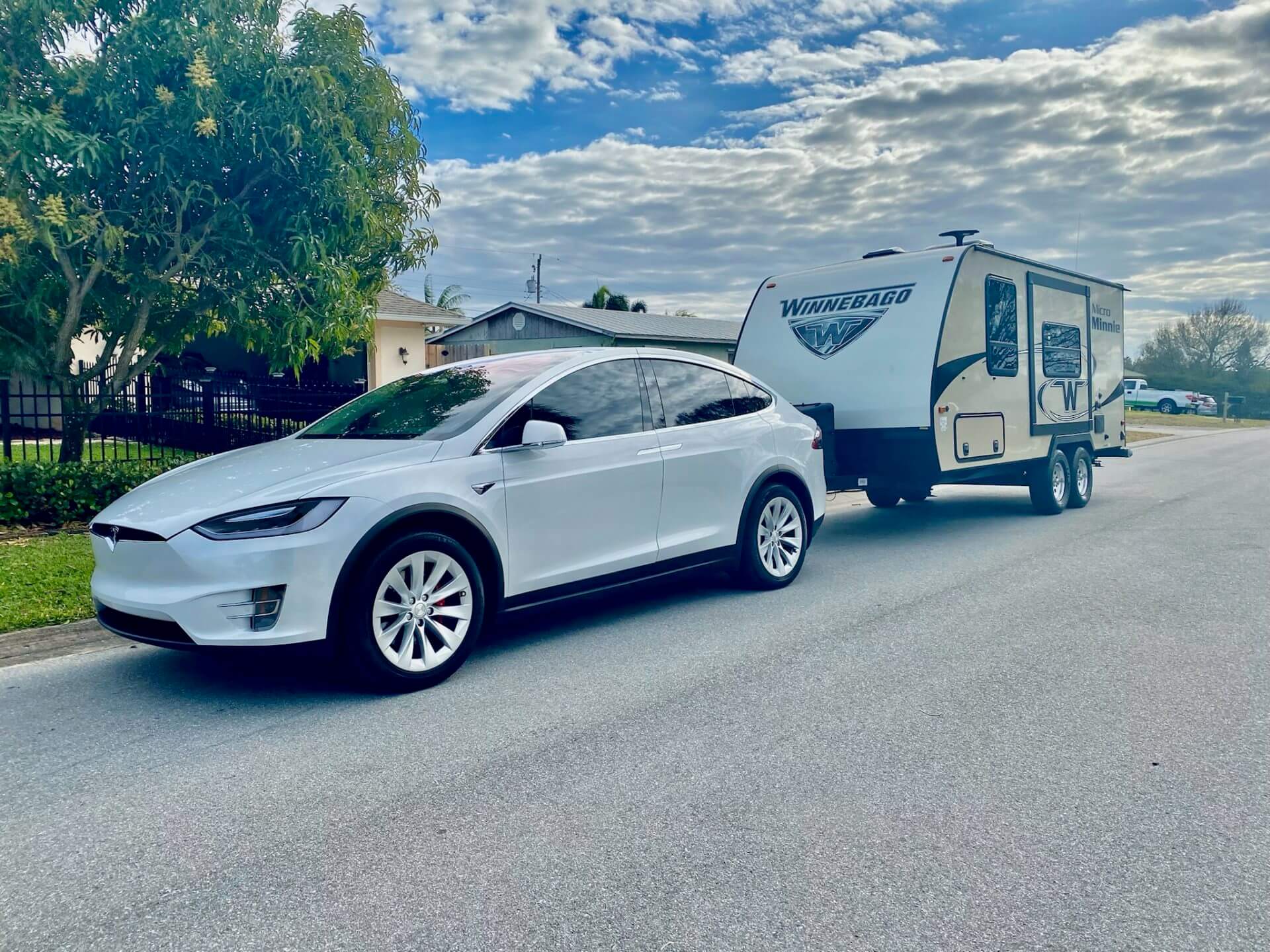Electric vehicles (EVs) have gained significant popularity in recent years due to their eco-friendly nature and technological advancements. As more people embrace the transition to electric mobility, the question of whether an EV can pull a campervan has become increasingly relevant. In this comprehensive blog post, we will delve into this topic and provide you with valuable insights to help you make an informed decision.
We will specifically focus on two notable EV models, the Mazda MX-30 and Nissan Leaf, and thoroughly review their towing capabilities. So, if you’re an outdoor enthusiast dreaming of embarking on your next camping adventure with an EV, you’ve come to the right place. Join us as we debunk common misconceptions and shed light on the true potential of EVs for towing campervans. Get ready to discover the exciting possibilities that lie ahead!
I. Understanding Towing Capacities
Before we delve into specific EV models, it’s important to understand the concept of towing capacities. Towing capacity refers to the maximum weight a vehicle can safely tow. It takes into account various factors, including the vehicle’s weight, engine power, transmission, and suspension. When it comes to EVs, it’s crucial to consider the specific model’s towing capacity to ensure it meets your campervan’s weight requirements.
II. Mazda MX-30
The Mazda MX-30 is a stylish and compact EV that has gained attention for its unique design and driving experience. In this Mazda MX-30 review, we will explore its towing capabilities and assess whether it can handle pulling a campervan.
Towing Capacity: The Mazda MX-30 is not specifically designed for towing heavy loads. As of the Mazda MX-30’s release, it does not have an official towing capacity rating. Therefore, it is important to consult with the manufacturer or a Mazda dealership to confirm its suitability for towing a campervan.
Powertrain and Performance: The Mazda MX-30 features a front-wheel-drive powertrain and is equipped with an electric motor and a lithium-ion battery. While its power and torque may be sufficient for everyday driving, it may not have the necessary power to handle the additional weight and strain of towing a campervan.
III. Nissan Leaf
The Nissan Leaf is one of the most popular and widely recognized EVs on the market. Let’s explore its towing capabilities and assess whether it can handle the task of pulling a campervan.
Towing Capacity: The Nissan Leaf is not originally designed for heavy towing. The first-generation Nissan Leaf does not have an official towing capacity rating. However, the newer models, such as the Nissan Leaf e+, may have a towing capacity of up to 1,000 pounds (453 kg), making it suitable for towing small camper vans or trailers. It’s essential to consult the manufacturer or a Nissan dealership for precise information regarding the specific model you’re considering.
Powertrain and Performance: The Nissan Leaf is available in various trims and powertrain options, offering different levels of power and performance. The higher-capacity battery options, such as the Leaf e+, provide more power and torque, making them more suitable for towing purposes. However, it’s important to keep in mind that towing a campervan may affect the overall driving range and efficiency of the vehicle.
IV. Additional Considerations
When contemplating towing a campervan with an EV, there are several important factors to consider:
Range and Efficiency: Towing a campervan with an EV will likely impact the vehicle’s range and efficiency. The additional weight and wind resistance can reduce the driving range, necessitating more frequent charging stops during long trips.
Charging Infrastructure: It’s essential to plan your route and ensure that charging infrastructure is available along the way. Charging stops may take longer than refuelling a conventional vehicle, so it’s important to account for this additional time during your travel plans.
Safety and Stability: Towing a campervan requires proper safety measures and consideration for stability. Ensure that the tow bar, hitch, and electrical connections are appropriately installed and meet safety standards. Additionally, be aware of the weight distribution and ensure that the campervan is loaded correctly to maintain stability while towing.
V. Consult with Manufacturers and Experts
To make an informed decision about towing a campervan with an EV, it’s crucial to consult with the vehicle manufacturers and experts. They can provide specific information about towing capacities, recommended practices, and any limitations or considerations associated with each EV model.
Conclusion
While EVs have made significant strides in terms of performance and range, towing heavy loads such as campervans may still pose some challenges. The Mazda MX-30, with its unique design and driving experience, may not be the ideal choice for towing. On the other hand, the Nissan Leaf, particularly newer models with higher towing capacities, offers more potential for towing small camper vans or trailers. However, it’s important to consider factors such as range, efficiency, safety, and stability when deciding to tow with an EV.
If you’re considering towing a campervan with an EV, it’s crucial to consult with the manufacturers, explore the specific towing capacities and recommendations for each EV model, and seek expert advice. By understanding the capabilities and limitations of different EVs, you can make an informed decision that aligns with your camping needs and ensures a safe and enjoyable journey. Happy camping with your EV!

